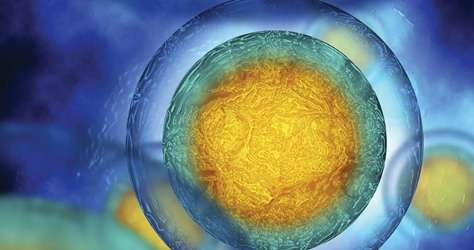At a glance
- What screening tests will I be offered?
- How do these work?
- What happens if I'm found to be high risk?

During your antenatal care you will be offered tests to check on your baby's health, growth and development.
Nuchal translucency screening
One of these tests is called nuchal translucency screening, offered in conjunction with a blood test to create the ‘combined test’, checks for any chromosome differences with your baby.
The nuchal test is done by ultrasound scanning at around 11-14 weeks of pregnancy - sometimes at the same time as your dating scan. The sonographer will measure the thickness of the skin at the back of your baby's neck, and the measurement, along with other factors, such as your age, and the stage of your pregnancy, will be assessed for indicators for Down's syndrome.
Sometimes nuchal screening is done in conjunction with a blood test to create the 'combined test'.
What happens if I have a higher chance?
If you are found to have a higher chance, you can decide whether to have a diagnostic test to find out for certain if your baby has a chromosomal difference. This will either be via chorionic villus sampling or amniocentesis. Chorionic villus sampling - or CVS - is usually carried out between the 11th and 14th week of pregnancy. Alternatively if you do have a higher chance result, the option of an NIPT with diagnostic testing may be offered free of charge by some NHS trusts.
How does CVS works?
A doctor will take a tiny piece of tissue from your placenta via a needle inserted into your tummy. There is a very small risk of miscarriage associated with this test, estimated at 1-2 percent. It is hard to be totally accurate, however, because of the existing rate of miscarriage early in pregnancy.
Amniocentesis is another diagnostic test that will give you a definite answer as to whether your baby has Down's syndrome (or other rare chromosome conditions). It is usually done at 16 weeks, and a small amount of fluid from the amniotic sac in your womb is removed with a needle. The fluid will contain cells from your baby and these will be laboratory tested to tell for certain if there are any chromosomal issues. There is about a 1 in 100 miscarriage risk with amniocentesis.
Support for Down's syndrome
If you find out your baby does have Down's syndrome, your doctors will talk you through your options and offer you support. The Down's syndrome association can give you further help and advice.